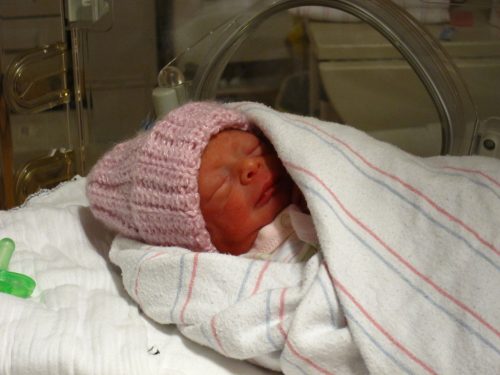Imagine a highway. Do you picture it as an innovation of civil engineering? Have you ever considered it a magnified version of your brain? White matter acts as the network of roads transporting information from one region of the brain to another. Yet, like our own world, the traffic flow along these neural highways is consistent and patterned. Brain regions develop preferred communication with other regions, forming functional networks that make our complex human behaviors possible. With advanced imaging technology, researchers have been able to observe these networks even in fetal brains as they develop.
Yet, not all babies have the fortune of completing their development within the womb. According to a study published in Scientific Reports, babies born preterm—prior to 37 weeks of gestation—may have weakened functional networks compared to babies born at term.
“When babies are born preterm, they are at an increased risk for short-term and long-term problems,” said Roberto Romero, chief of the NIH Perinatology Research Branch at the National Institute of Child Health and Human Development (NICHD) and co-author of the study. Children born preterm have increased risks of blindness, cerebral palsy, and social deficits among other complications. “They can survive, but they tend to have neurodevelopmental disorders,” said Romero.
The researchers found reduced traffic flow along neural highways in the brains of preterm babies even before they were born. The reduced traffic flow can lead to a lag in the development of abilities like language. Coincidentally, the researchers found such reductions particularly in Broca’s area, a brain region considered vital for language, in their sample from the Detroit metropolitan area.
In the US, black women have higher rates of preterm births, but researchers suspect socioeconomic status—and the accompanying social stress—may play a factor. Plagued by poverty, Detroit has one of the highest rate of preterm births among major American cities at almost fourteen percent in 2015, according to the Michigan Department of Health and Human Services. For black women in the city, the risk rises to fifteen percent. “They have more health problems. They also have children with higher proportions of health problems, and there is also a prevalence of language delay,” said Moriah Thomason, a research director at the NICHD and co-lead author of the study.
According to the National Academy of Medicine, preterm births cost the US an estimated $26.2 billion in 2005 through medical, social, and educational support costs. The study suggests the associated health problems start before birth and demonstrates the need to study causal factors before birth to effectively reduce the medical and economic burdens that follow a preterm birth. “New findings like this need to be replicated multiple times,” said Laura Ment, a pediatrician and neurologist at the Yale School of Medicine and co-author of the study. Further research could benefit future mothers at risk, particularly those in very challenged populations.

